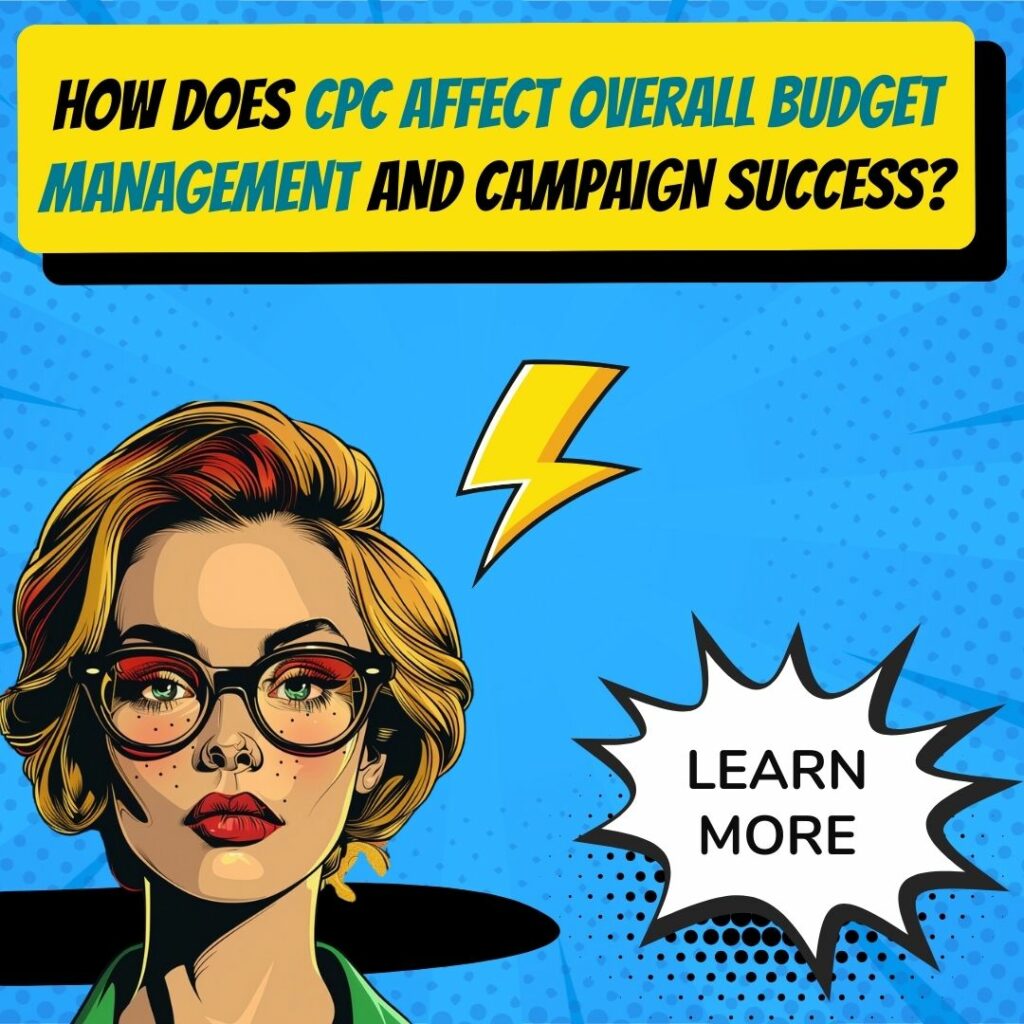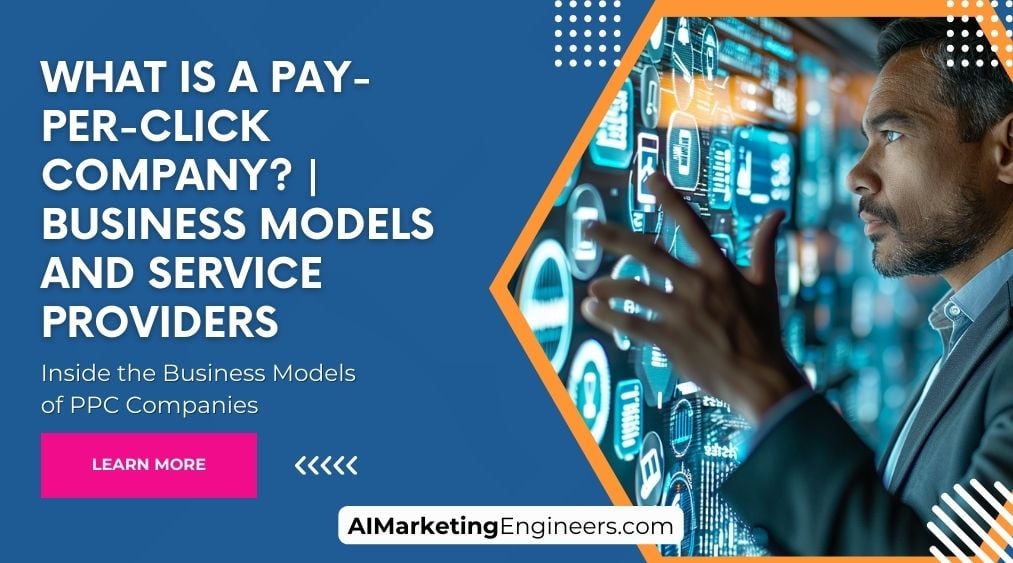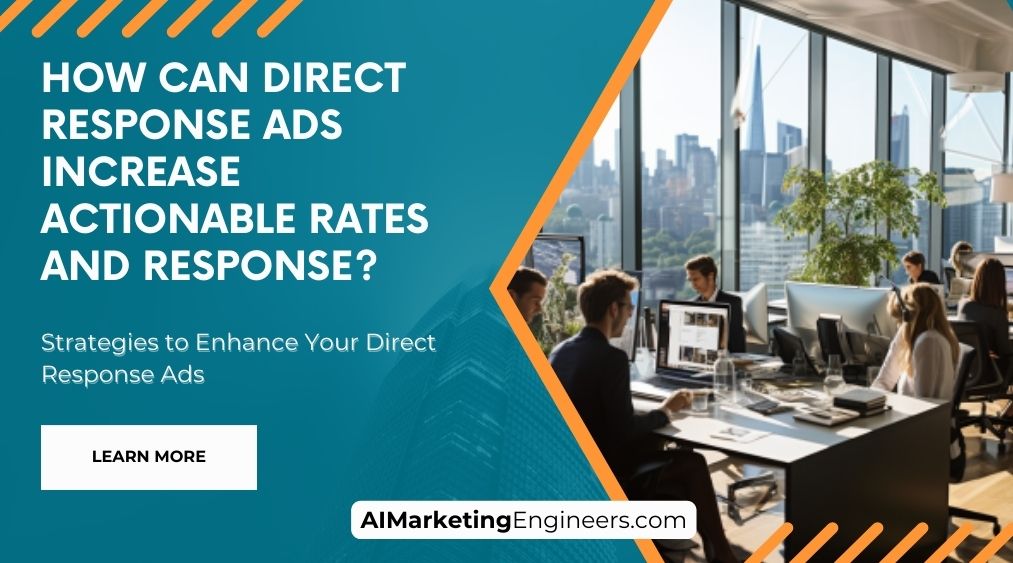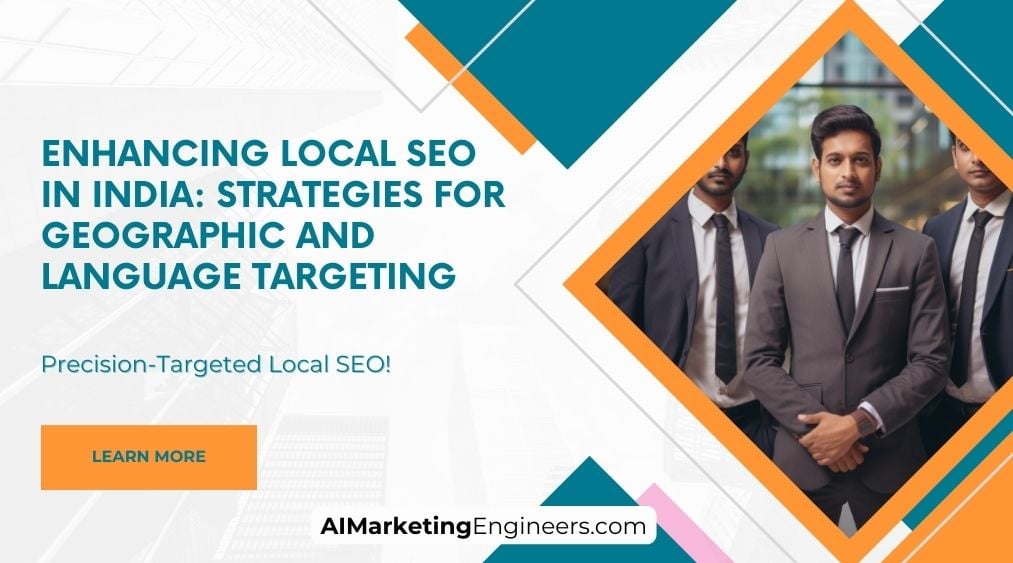Key Takeaways
✅ Targeted Advertising: Dive into how PPC firms zoom in on the audience that matters. Did you know that an impressive 65% of all high-intent searches result in a click on a paid ad? That's the magnetism of precision-targeting in action, drawing the right people to your offers.
✅Measurable Results: The beauty of PPC is in the numbers; with real-time tracking, see a transparent ROI unfold. In fact, businesses make an average of $2 in income for every $1 spent in Google Ads. That's the true measure of a strong campaign.
✅ Flexibility and Scalability: PPC's adaptability is unparalleled, catering from the nimble start-up to the giants in business, ensuring ad spend efficiency. With over 7 million advertisers invested in PPC in 2017 alone, this tool's scalability is beyond question.

Introduction
Have you ever wondered how businesses cut through the noise and get their products seen by precisely the right people at the right time? Pay-per-click companies aren't just about ads—they're architects building bridges between brands and consumers. In the landscape of digital marketing, where an estimated 35% of product searches start on Google, grasping the essence of a PPC company can be the crucial difference between a thriving business and one that's just getting by.
But what's shaking up the status quo in the PPC scene today? How can you leverage emerging trends to not just float, but soar, with your campaigns? Our walkthrough on Business Models and Service Providers will reveal just that. Dangle on the edge of your seat as we unfold actionable insights and groundbreaking information that could redefine how you view your click-related conquests. Buckle up for a journey into the realm of clicks that convert, strategies that sizzle, and PPC intel that will power up your business like never before.
Top Statistics
| Statistic | Insight |
|---|---|
| Projected global spend on search advertising in 2024: $190.5 billion. | With such a significant investment, this highlights the ever-growing importance of PPC in the advertising mix. |
| Return on investment (ROI) for businesses using PPC: $2 for every $1 spent. | A clear indicator of the effectiveness of PPC, illustrating why companies are willing to allocate substantial funds to this channel. |
| Percentage of PPC ad clicks from mobile devices: 53%. | This statistic shows the crucial role of mobile in PPC campaigns and the necessity of optimizing ads for mobile devices. |
| Average cost per click (CPC) for Google Ads: $2.69 for search ads. | Understanding the average CPC is crucial for budgeting and estimating the potential costs of a PPC campaign. |
| Percentage of small to mid-sized businesses with a PPC campaign: 65%. | Indicates how prevalent PPC has become, even among smaller companies, suggesting its accessibility and perceived value across business sizes. |
Understanding the Role of a Pay-Per-Click Company
In the bustling world of online marketing, there's a particular type of business that can make heads turn with its click-worthy prowess: a pay-per-click (PPC) company. It's a business niche that focuses on crafting and managing PPC advertising services for clients. Think of advertisements that pop up on your favorite search engines or social platforms – that's their battlefield. Here, advertisers pay a small fee every single time someone clicks on their advertised link. These companies are experts in driving targeted traffic and increasing conversion rates. They use sophisticated tools and strategies to maximize the effectiveness of PPC campaigns.
Business Models of PPC Companies
Interestingly, PPC companies don’t all dance to the same tune when it comes to their pricing strategies. They use different business models, ensuring they cater to a broad range of client needs. Some charge by the hour, others fix a price per project, and a handful takes a cut from the ad spend. It's a diverse landscape. But how much should an advertiser expect to fork out? Recent statistics indicate that average small and medium-sized businesses spend between $9,000 and $10,000 on their PPC campaigns each month. This variability in pricing models allows businesses of all sizes to find a PPC solution that fits their budget. Understanding these models helps clients choose the best arrangement for their specific needs and goals.
Services Offered by PPC Agencies
At their core, PPC agencies offer specialized services. It all starts with keyword research, sifting through the digital noise to find the golden words that can make an ad flourish. They also spearhead ad group creation, where ads are tailored and crafted to lure the right crowd. Then, there’s ad auction management and working on improving that elusive Quality Score. Plus, agencies are constantly in the ring, tweaking and tuning campaigns for peak performance. Additionally, they provide detailed analytics and reporting to track campaign performance. Their expertise extends to creating compelling ad creatives and landing pages that drive conversions.
Key Platforms Used by PPC Professionals
But where do these PPC gladiators show off their ad prowess? The playgrounds for these campaigns are the giants of the digital landscape. Google Ads rules the land with its vast reach, while Facebook Ads provide a rich social media tapestry to draw from. Then there's Microsoft Ads and LinkedIn Ads, each providing their distinct audiences. And let's not overlook Amazon Ads—the heavyweight in the e-commerce arena. These platforms offer unique targeting options and advantages. Choosing the right platform depends on the business's target audience and marketing goals.
Benefits of Hiring PPC Services
Clients often wonder why they should engage a PPC company. The perks lie in the precision and efficiency of PPC. There's the aspect of budget flexibility, allowing businesses to invest according to their coffers. The results are measurable, with numbers that sing the true tale of an ad’s success. The targeting? Exceptionally sharp—it zeroes in on potential customers who are already interested in related topics or products. And it's cost-effective—because paying for the eyeballs that actually notice your ad makes a lot of cents and, hopefully, many dollars. Moreover, PPC campaigns can quickly adapt to market changes and business needs. Professional PPC management ensures optimal use of resources and maximizes return on investment.
How to Start a PPC Agency
Starting a PPC agency isn't a walk in the digital park. It begins with researching the market—understanding the ins and outs of the PPC industry. Next comes the design of a robust business plan that outlines missions and mechanisms. Once the services are well-defined, it's time to draft a protective contract template for future clients, and finally, build up a promising prospect list. These steps are the foundation stones of a potential PPC empire. Building a strong online presence and networking with potential clients are also crucial. Continuous learning and staying updated with industry trends will keep the agency competitive and innovative.
AI Marketing Engineers Recommendation
Recommendation 1: Invest in Smart Bidding Strategies: To really get the most out of a Pay-Per-Click company, you'll want to tap into the power of smart bidding strategies. This isn't just about spending money on ads—it's about smart spending. By utilizing machine learning, smart bidding can optimize your bids in real time, targeting the highest value clicks. How significant is this? Google reports that advertisers using Google Ads Smart Bidding see an average of 30% increase in conversions at the same cost per action. That's too substantial a number to overlook.
Recommendation 2: Prioritize Mobile Optimization Across Your Campaigns: Here's a number that should get your attention: According to 2021 data from Statista, about 54% of all online traffic comes through mobile phones. That's more than half of your potential audience! A top-notch Pay-Per-Click company will understand the significance of mobile optimization and will ensure that your ads not only appear on mobile but are also formatted and targeted with the mobile user in mind. You're not just reaching out; you're reaching out with purpose and precision.
Recommendation 3: Leverage Audience Segmentation Tools for Increased Engagement: One size does not fit all, especially in the world of pay-per-click advertising. Utilize sophisticated audience segmentation tools that a proficient Pay-Per-Click company provides, to divide your audience into groups based on behaviors, interests, and demographics. By doing this, you ensure that your ads are as relevant as they can be—which can lead to higher engagement rates. Remember, Adobe’s Digital Economy Index found that companies with the strongest omnichannel customer engagement strategies enjoy a 10% year-over-year growth, a 10% increase in average order value, and a 25% increase in close rates. Engaging with your audience where they are and how they prefer could very well mean the difference between a click and a customer.
Relevant Links
- Revolutionize Your Digital Presence
- Unlock PPC Success in China's Digital Landscape
- Elevate Your Campaigns with Performance Marketing in India
- Master SEO in Germany's Unique Market
- Optimize Your SEO for Japan's Digital Landscape
Conclusion
In the bustling world of online advertising, Pay-Per-Click companies stand as navigators, guiding businesses through the intricacies of digital marketing. By employing a model where every click equals a fee, these specialized agencies offer a transparent and measurable way of reaching potential customers. With several business models on the table—from hourly rates to a fixed project fee or a percentage of ad spend—clients have the flexibility to choose a service that aligns with their financial comfort zone.
But what makes these service providers so indispensable? They delve deep into keyword research, ad group creation, and campaign monitoring—ensuring that every penny of your ad spend works as hard as you do. These experts take on the heavy lifting of ad auction management and quality score improvement, which can be particularly challenging for newcomers to grasp.
The benefits of partnering with a PPC company are numerous, delivering measurable results, budget flexibility, and cost-effective targeted advertising that connects directly with individuals in active search mode. With the help of platforms such as Google Ads and Facebook Ads, these agencies can help catapult your product or service to the top of a user's search results. Starting a PPC agency requires not only knowledge of market trends and the creation of a solid business plan but also a keen understanding of one's target client base and competition. With these insights, an agency can carve out its place in the industry, turning clicks into customers with strategic prowess.
Should you consider putting your digital advertising efforts in the hands so adept at navigating the PPC waters? The data doesn't lie: a well-crafted PPC strategy can spell the difference between languishing in obscurity and capturing the concerted attention of a targeted audience. Whether looking to enhance your business's online presence or contemplating the leap into starting your own PPC agency, the question really isn't 'if' but 'when' you'll take that crucial step towards harnessing the undeniable power of pay-per-click advertising.
FAQs
Question 1: What does PPC stand for?
Answer: PPC stands for Pay-Per-Click, a model of internet marketing where advertisers pay a fee each time their ads are clicked.
Question 2: What is PPC advertising?
Answer: PPC advertising is a paid online strategy allowing businesses to place ads across the web, like in search results, on websites, and on social media platforms. Advertisers pay when someone clicks their ad.
Question 3: How does PPC work?
Answer: Advertisers bid on keywords relevant to their market. When users search for these keywords, the ads might appear. If the ad is clicked, the advertiser pays the amount they bid.
Question 4: What are the components of a PPC ad?
Answer: The components include a headline, description, a display URL, and sometimes extensions like site links or callouts.
Question 5: What is PPC testing or split testing?
Answer: PPC testing is about trying out different ad elements to see what works best and improve conversion rates.
Question 6: What is a PPC campaign?
Answer: A PPC campaign involves organizing your ads, setting up how much you're willing to pay, crafting ad groups, and tweaking landing pages to achieve effective advertising.
Question 7: What are the benefits of PPC ads?
Answer: PPC ads can show results quickly, target specific groups of people, and could potentially be more affordable than other advertising methods.
Question 8: How do ad auctions work?
Answer: Ad auctions decide which ads get shown and their order. Advertisers bid on keywords, and the highest bid generally lands the top spot. However, what they actually pay depends on the next highest bid.
Question 9: When should I use PPC?
Answer: PPC is great for quick results, like when starting a business or running a special promotion.
Question 10: How do I manage PPC costs?
Answer: You can manage costs by setting a daily limit on spending, bidding smartly, and working towards better ad quality to decrease the cost per click.
Academic References
- Mordkovich, B., & Mordkovich, E. (2005). Pay-Per-Click Search Engine Marketing Handbook: Low Cost Strategies for Attracting New Customers Using Google. MSN, Yahoo & Other Search Engines. MordComm, Inc. This comprehensive handbook delivers an in-depth look into PPC search engine marketing with an accessible approach to fundamentals and strategies for successful campaigns.
- Midha, V. (2009). The impact of preventive and detective controls on the quality and motivation of Wikipedia’s contributors. International Journal of Information Management, 29(5), 373-382. Here, Midha examines the pivotal issue of click fraud in PPC advertising programs and emphasizes the importance of strong fraud detection systems.
- Ratliff, J. M., & Rubinfeld, D. L. (2010). Online Advertising: Defining Relevant Markets. Journal of Competition Law & Economics, 6(3), 653-686. Ratliff and Rubinfeld discuss the intricacies of defining relevant markets in the online advertising sphere, including pay-per-click, and their implications for the fields of competition law and economics.
- Rosso, M., & Jansen, B. J. (2010). Brand Names as Keywords in Sponsored Search Advertising. Communications of the Association for Information Systems, 27, Article 6. Rosso and Janseny’s investigation into using brand names in sponsored search advertising reveals insights on its effect on brand visibility and the effectiveness of the advertising itself.
- Wang, X. S., Feng, J., & Zhang, P. (2011). Performance-based Advertising: Implications of Asymmetric Information on Advertising Efficiency. Journal of Management Information Systems, 28(1), 137-170. This research by Wang and colleagues delves into the efficiency of PPC advertising and examines the relationship between the valuation of clicks and the corresponding advertising costs.
- Wilbur, K. C., & Zhu, Y. (2009). Click Fraud. Marketing Science, 28(2), 293-308. Wilbur and Zhu take a critical look at click fraud in PPC advertising, proposing new methods that could potentially help detect and prevent fraudulent activities.
- Zhang, Y., & Guang, Z. (2008). Online Advertising Fraud. CRC Press. This study presents an innovative method for the detection of click fraud in pay-per-click advertising streams, utilizing temporal stateful bloom filters.
- Havlíčková, P. (2013). Online Marketing in Cultural Institutions Using the Example of Museums. Master's Thesis, Masaryk University, Brno. Havlíčková explores how online marketing strategies, specifically PPC, can be applied within the cultural sector to enhance visibility and audience engagement.
- Černý, P. (2009). Search Engine Marketing: Analysis, Strategies, Tools. Bachelor's Thesis, Masaryk University, Brno. Černý scrutinizes the integral role of PPC advertising within broader marketing activities, noting its effectiveness in accurately targeting desired audiences.
- Chernutskiy, A. (2015). Internet Marketing in Russia. Doctoral Dissertation, Ural Federal University. Chernutskiy examines the specific landscape of internet marketing in Russia, discussing the nuances of PPC among other digital marketing tactics.












